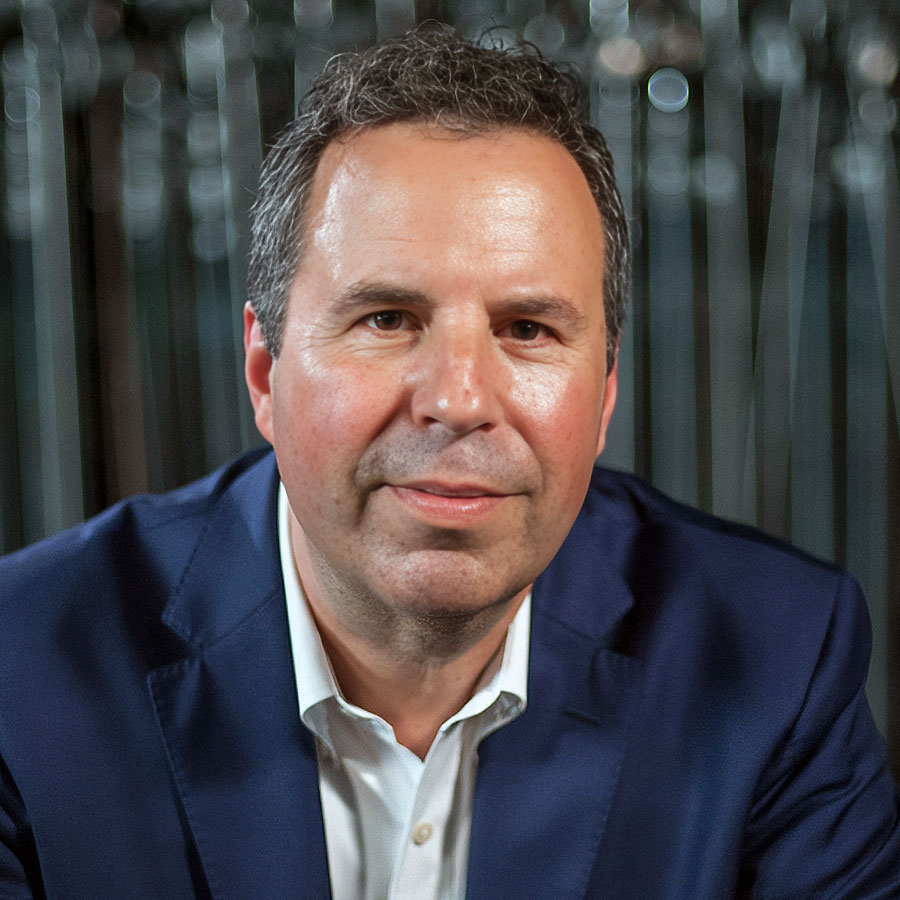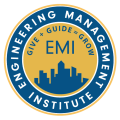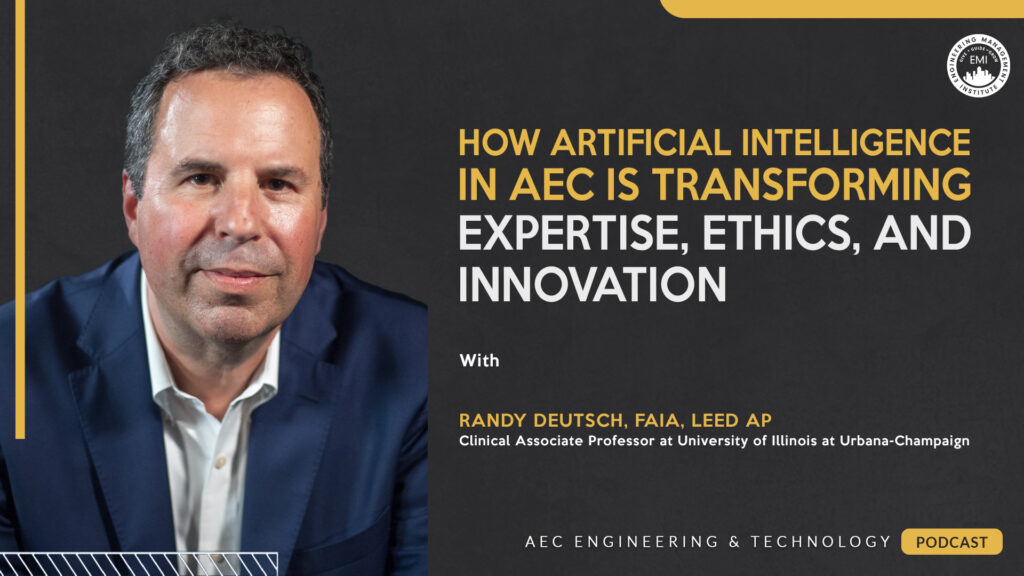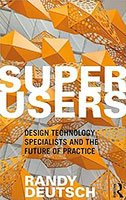In this episode, I talk with Randy Deutsch, FAIA, LEED AP, Clinical Associate Professor at the University of Illinois at Urbana-Champaign, about how AI is transforming design, construction, and creativity, reshaping the AEC industry with automation, data, and innovation. This includes the growing impact of artificial intelligence in AEC, where AI-driven tools enhance workflows, optimize efficiency, and create new opportunities for industry professionals.
***The video version of this episode can be viewed here.***
Engineering Quotes:
Here Are Some of the Questions I Asked Randy:
- How can AI enhance human expertise and creativity, and what new opportunities does it create for professionals in the AEC industry?
- How is AI transforming education and training in the AEC industry, and what key skills should students and professionals develop to stay competitive?
- What AI tools are currently making the biggest impact in AEC, and how can firms structure their data to maximize their value?
- What ethical responsibilities do design professionals have when using AI, and how should they navigate these challenges?
- What are the biggest challenges to AI adoption in AEC, and how can firms balance early adoption with long-term benefits?
- What final piece of advice can you give to AEC professionals on developing the right mindset and practical steps to stay ahead of AI’s impact on our industry?
Here Are Some Key Points Discussed in This Episode About How Artificial Intelligence in AEC is Transforming Expertise, Ethics, and Innovation:
- AI enhances human expertise by optimizing workflows, improving efficiency, and enabling professionals to focus on complex challenges. It does not replace jobs but creates opportunities for architects and engineers to advance innovation, improve work-life balance, and tackle industry-specific problems more effectively. Artificial intelligence in AEC plays a crucial role in these advancements by bridging the gap between automation and decision-making in building projects.
- AI shifts from providing instant responses to generating more thoughtful and precise answers, encouraging professionals to refine their questions for better outcomes. To stay competitive, students and industry professionals must strengthen problem-solving abilities, critical thinking, and adaptability to leverage AI effectively.
- AI tools bridge the gap between architects and engineers, improving collaboration by understanding both perspectives simultaneously. To maximize AI’s value, firms must maintain structured and accurate data, remain actively involved in decision-making, and ensure that AI-generated outputs align with ethical and professional standards.
- Design professionals hold the responsibility of verifying AI-generated information instead of relying on it without scrutiny. While AI provides valuable insights, professionals must critically assess its outputs, confirm accuracy, and apply ethical judgment before integrating AI-driven solutions into their work.
- AI is not just another tool but a major shift in how technology integrates into daily workflows, requiring a new approach to adoption. Artificial intelligence in AEC is leading this shift by improving project efficiency, enhancing safety, and enabling predictive analysis for better decision-making. Firms can balance early adoption with long-term benefits by incorporating AI gradually while maintaining a focus on creativity, ethical decision-making, and human oversight.
- To stay ahead, AEC professionals must develop uniquely human skills such as creativity, critical thinking, and problem-solving. Rather than viewing AI as competition, they should embrace it as a tool that enhances expertise, improves efficiency, and drives meaningful innovation in the industry.
More Details in This Episode…
About Randy Deutsch, FAIA, LEED AP

A thought leader in the intersection of technology and architecture, Randy has authored six influential books, including Convergence: The Redesign of Design, Superusers: Design Technology Specialists and the Future of Practice (recognized as a “Best Future of Technology Book of All Time”), Think Like An Architect, and Adapt As an Architect: A Midcareer Companion. His work explores the evolving role of architects in an era of rapid technological change.
Since 2001, Randy has been shaping the next generation of architects through teaching roles at the University of Illinois at Chicago and the University of Illinois Urbana-Champaign, where he also served as associate director for Graduate Studies. His leadership extends beyond academia—he has held positions on the AIA Chicago Board as director and vice president, served on the Architect Magazine R+D jury, led an executive education program at Harvard GSD, and contributed to the 2023 AIA National Design Awards jury.
In 2020, his team secured an NSF Grant and DPI Seed Grant to establish an institute dedicated to applying AI in the design, construction, and operation of buildings and infrastructure. That same year, he was elevated to Fellow of the American Institute of Architects and named a Senior Fellow of the Design Futures Council.
As an author, international keynote speaker, workshop leader, and mentor, Randy is dedicated to helping design professionals navigate emerging technologies and adapt to the evolving practice of architecture with confidence.
About the Host: Nick Heim, P.E.

Nick’s interests lie at the intersection between the built world and technology, and he can be found looking for the ever-changing answer to the question, “How can we do this better?” Nick can be found on LinkedIn, producing content about use of technologies in his civil engineering career and small business.
Books Mentioned in This Episode:
Sources/References:
University of Illinois, Urbana-Champaign
Randy Deutsch
Connect with Randy Deutsch, FAIA, LEED AP, on LinkedIn
Please leave your comments, feedback, or questions in the section below.










